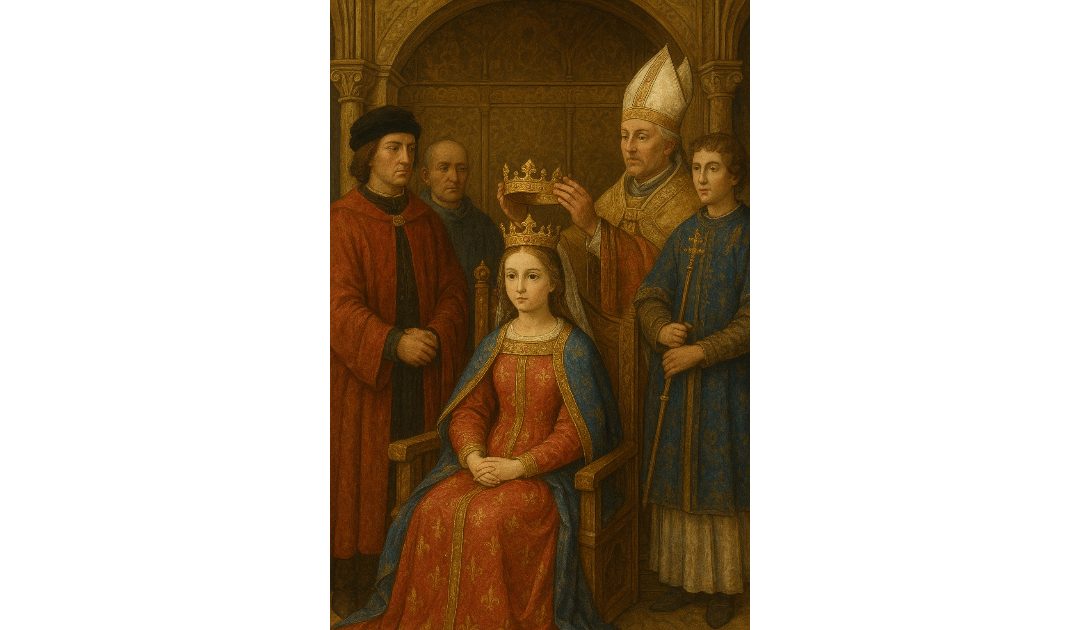OK, hands up, I’m not writing about Harry Potter’s owl. Hedwig (in German), Hedvig (in Hungarian), or Jadwiga (in Polish) was crowned king of Poland, even though she was a woman, on the 16th of October, 1384.
Born around 1373 or 1374, she was the youngest daughter of King Louis I of Hungary and Elizabeth of Bosnia. Despite her youth, her reign marked a significant era in the history of Poland, driven by political acumen, deep piety, and cultural contributions.
Early Life and Ascension to the Throne
Hedwig was born into the powerful Capetian House of Anjou. Her upbringing was steeped in the political complexities of medieval Europe, with her father ruling over Hungary, Croatia, and Poland. Initially, Hedwig was betrothed to William of Austria, a union designed to fortify alliances within Europe. However, the political landscape shifted following the death of her father in 1382.
Despite having elder sisters, Polish nobility chose Jadwiga as their monarch, favouring her over her siblings due to strategic considerations. I shall stop calling her Hedwig now and switch to her Polish name, since she was crowned “King” of Poland in 1384 at the tender age of around ten, a title chosen deliberately to emphasise her sovereignty in her own right, not merely as a consort.
Marriage to Jogaila of Lithuania
Jadwiga’s marriage was pivotal not just in her personal life but in shaping the future of Eastern Europe. Although previously engaged to William of Austria, the Polish nobility opposed this match. Instead, they arranged her marriage to Jogaila, Grand Duke of Lithuania. This union was instrumental in the political landscape of the region.
Jogaila agreed to significant terms: he would convert to Christianity, be baptised as Władysław II Jagiełło, and unite his pagan realm with predominantly Catholic Poland. Their marriage in 1386 established the Polish-Lithuanian union, creating one of Europe’s most formidable political entities. This alliance not only expanded territorial influence but also fostered the spread of Christianity in Lithuania.
Reign and Achievements
Jadwiga’s reign was marked by her dedication to education, religion, and cultural development. Despite her young age, she was an active ruler, known for her wise counsel and political diplomacy. She played a crucial role in mediating disputes, forging alliances, and supporting the Church.
One of her significant contributions was the restoration of the Kraków Academy (later known as the Jagiellonian University), which had fallen into decline. Jadwiga generously donated her own personal wealth, including her royal jewellery, to fund the university’s revival. This institution became a centre of learning and scholarly excellence, attracting students from across Europe.
Jadwiga was also renowned for her charitable works. Her compassion extended to all social classes, and she was especially known for aiding the poor and the sick. Her deep piety influenced her policies, and she actively supported the Church’s missions, particularly in converting Lithuania to Christianity.
Personal Life and Legacy
Despite the political nature of her marriage, historical accounts suggest that Jadwiga and Jogaila developed mutual respect and affection. Tragically, Jadwiga’s life was cut short. She died in 1399 at around 25 years old, following complications from childbirth. Her only child, a daughter, also died shortly after birth.
Jadwiga’s death marked the end of the Capetian House of Anjou’s rule in Poland, but her legacy endured. The Polish-Lithuanian union she helped establish thrived, becoming a significant power in Europe for centuries.
Her canonisation process began soon after her death, driven by widespread veneration of her life and deeds. Numerous miracles were attributed to her intercession. However, it wasn’t until 1997 that she was officially canonised by Pope John Paul II, recognising her as Saint Jadwiga.
Cultural and Historical Impact
Jadwiga’s influence transcended her reign. She became a symbol of piety, scholarship, and benevolent rule. Her life embodied the ideals of a medieval Christian monarch—balancing governance with moral and spiritual leadership.
Her contributions to education had a lasting impact, with the Jagiellonian University continuing to be a beacon of learning. Her role in the Christianisation of Lithuania paved the way for religious and cultural integration within the Polish-Lithuanian Commonwealth.
Jadwiga’s life also challenges traditional narratives about medieval female rulers. Despite societal constraints, she exercised significant political power, made critical decisions, and left an indelible mark on her nation’s history.

